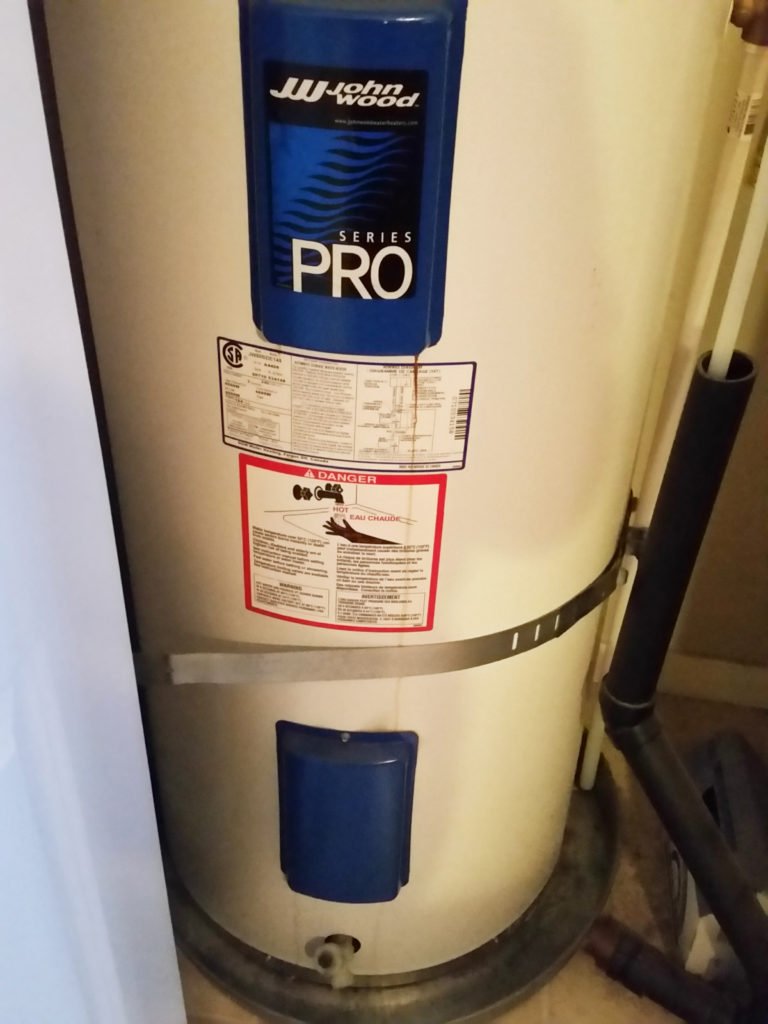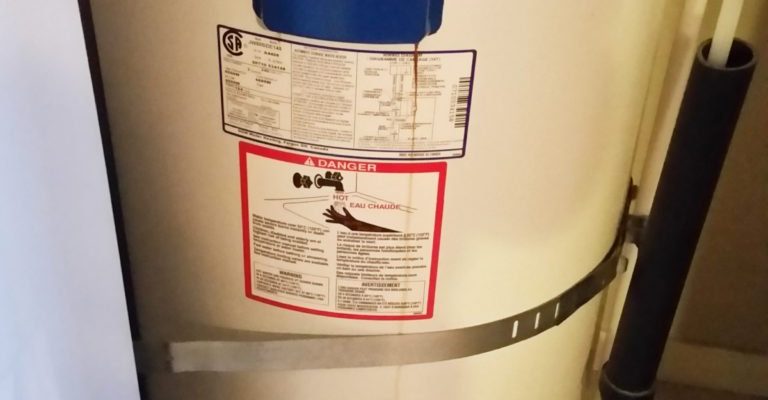
Let’s get into what happens when you try to register a used Kenmore water heater for warranty. We’ll cover how Kenmore handles warranties, why things aren’t as cut-and-dried as you might hope, and what your real options are if you buy used. If your hot water’s at stake, you deserve honest answers—not just corporate jargon. So, grab your metaphorical tool belt, and let’s untangle the pipes.
How Kenmore Water Heater Warranties Really Work
Here’s the thing: warranties are kind of like fire escapes—you hope you never have to use them, but you feel better knowing they’re there. For Kenmore water heaters, the warranty is originally set up for the first buyer. That means if you walk into a big-box store, buy a shiny new Kenmore heater, and register it right away, you’re usually covered for a set time (often between 6–12 years, depending on the model).
But it gets trickier with ownership changes. Most manufacturer warranties, including Kenmore’s, are non-transferable. In plain English, this means the warranty stays glued to the first owner. If you buy the water heater used—from Craigslist, a neighbor, or a renovation sale—Kenmore typically won’t let you just call in and say, “It’s mine now, can I have coverage?” They’ll want the original proof of purchase, and even then, they’ll check if you’re the person who first registered it.
*Even if you have the manual, serial number, or the physical unit itself, the warranty doesn’t usually jump owners like a syncing remote between devices.* It’s more like a code that’s one-time use only. Honestly, this is frustrating if you’re trying to save money with a secondhand buy, but it’s standard across the major water heater brands.
Can You Still Register a Used Kenmore Water Heater?
You might be wondering, “But what if I just try to register the used water heater in my name?” Unfortunately, the answer is almost always no. Kenmore, like many appliance brands, links the initial warranty registration to the original point-of-sale receipt and the owner’s name.
Here’s why this matters: When someone tries to register a used Kenmore water heater, the system will either flag the serial number as already activated, or the customer service rep will ask for original purchase info. If you can’t provide it, your registration attempt usually hits a dead end. The goal is to prevent people from resetting or extending warranties by swapping owners—sort of like trying to reset or re-pair a remote that’s already locked onto its original device.
There are rare cases (like builder-installed units in new homes) where a warranty might work for a new homeowner, but those are exceptions, not the rule. For almost everyone buying a Kenmore water heater secondhand, you can’t count on the manufacturer to back you up if something goes wrong.
If warranty is important to you, a used Kenmore water heater is basically “as is”—you’re responsible for repairs and troubleshooting from the moment you plug it in.
What If You Have the Original Receipt?
Alright, let’s say you got lucky and the previous owner handed you the original sales receipt. Does this change things? Maybe a bit, but not much. Here’s what usually happens:
- The warranty clock is still ticking. Even with the receipt, the warranty time started when the unit was first purchased, not when you started using it. If the heater’s already a few years old, you’re inheriting a partially used warranty.
- Kenmore may still deny coverage if you’re not the original buyer. Most policies require that the warranty stay with the first owner. You could try explaining your situation to customer service, but you’ll need to be persistent, and success is never guaranteed.
- Servicing or “resetting” the warranty isn’t an option. Once a water heater has been registered and paired to an owner, there’s really no way to “reset” the warranty or transfer it to you, even if you bought it in perfect shape from a trustworthy seller.
So, while having the receipt adds a small glimmer of hope, it doesn’t usually open the door to full warranty protection. It’s a bit like having the original battery in a remote: useful, but it won’t make it brand-new.
Why Manufacturer Warranties Don’t Transfer
This is one of those behind-the-scenes policies that seems unfair at first. But when you look closer, there are reasons why brands like Kenmore don’t let warranties jump from one owner to the next.
For one, manufacturers can’t always verify how the used water heater was installed, maintained, or handled. Maybe it was reset and repaired five times, or maybe it was never flushed and started building up sediment. If they honored every warranty after a resale, they’d end up covering a lot of wear and tear they can’t control.
Another factor: Kenmore and other brands use warranties to encourage new purchases. If you could just register a used unit and still have full protection, fewer people would buy new—and warranty claims might skyrocket.
So, while it might feel like a hassle, there’s a method to the madness. It’s all about protecting the company from risks they can’t track, just like how some remotes can’t be re-paired once they’re coded to a specific device.
Are There Alternatives If You Buy Used?
If warranty is a dealbreaker for you, buying a used Kenmore water heater might not be the best move. But, there are some smart ways to protect yourself:
- Third-party home warranties: Some home warranty companies let you add major appliances (including used water heaters) to your policy for a monthly fee. This isn’t the same as a manufacturer’s warranty, but it can cover repairs or replacement for normal wear and tear.
- Homeowner’s insurance endorsements: While rare, some policies let you add appliance breakdown coverage. Always check the fine print, though—many exclude water heaters or only cover sudden, accidental damage.
- DIY troubleshooting and regular maintenance: Used water heaters are more likely to need attention, so a bit of hands-on care goes a long way. Flushing the tank, checking the battery if you have a remote control system, and keeping an eye out for leaks or corrosion can extend its life—no registration required.
Buying used is always a bit of a gamble. But if you budget for small repairs and possible replacement down the line, you can still save money—even without warranty backup.
What If You’re Buying a “Like New” or “Refurbished” Kenmore Water Heater?
Sometimes, you’ll see Kenmore water heaters sold as “like new,” “open box,” or “factory refurbished.” You might think these would have different warranty options, right? Let me explain.
Factory-refurbished units sometimes come with limited warranties, but these are usually offered by the refurbishing company (not Kenmore/Sears directly). The warranty period is almost always shorter than new, often just 90 days to a year. It covers specific repairs and may have stricter troubleshooting and reset requirements before you can file a claim.
Open box or floor models are typically sold “as is.” If the vendor is an authorized dealer, you might get the remainder of the original warranty (based on first sale date), but only if all paperwork is transferred perfectly.
The short version: Always get clear, written details about warranty status from the seller. Don’t assume “looks new” means “fully warrantied.” When in doubt, treat anything not bought brand new from an authorized dealer as having no manufacturer warranty.
Comparing Kenmore to Other Water Heater Brands
You might be curious if any other brands offer more flexible warranty registration for used water heaters. Here’s what you need to know: Kenmore’s non-transferable policy is the norm, not the exception.
- Rheem, AO Smith, Bradford White, and Whirlpool all keep warranties locked to the original buyer and install date—just like Kenmore. Registration, proof of purchase, and often professional installation are required.
- Universal or generic water heaters sometimes have less-strict requirements, but their warranties tend to be shorter, and coverage is limited. You also might have more headaches syncing up any remote monitoring or reset features these units have.
- Buying from specialty dealers or installers can sometimes get you an extended or additional warranty—ask about it before you buy. But again, this is separate from the original manufacturer’s warranty you’d get with a brand-new Kenmore.
No matter the brand, secondhand water heaters are almost never fully warrantied by the manufacturer. Keep that in mind if you’re shopping around.
How To Check Warranty Status on a Kenmore Water Heater
If you’re staring at a used Kenmore unit and want to check its warranty status, here’s how you can do it:
- Find the serial number. This is usually on a sticker or plate attached to the side of the tank. You’ll need it for troubleshooting, code lookup, or registration attempts.
- Contact the manufacturer or service line. Call Kenmore/Sears customer service, give them the serial number, and ask if any warranty time is left. Be ready for them to request the proof of purchase and installation details.
- Ask about ownership transfer. Even if you have a receipt and paperwork, don’t be surprised if they decline to transfer the warranty to you. You can always try—just don’t count on success.
Knowing the warranty status is critical, especially if you’re planning to install or repair the heater yourself. A serial number lookup can also help you troubleshoot error codes, find manuals, and get specific reset instructions if your used unit doesn’t seem to work right.
The Bottom Line: Should You Bother Registering a Used Kenmore Water Heater?
So, can you register used Kenmore water heaters for warranty? In almost every case, the answer is no. The original warranty stays with the first owner, and the policy isn’t built to transfer—with or without a receipt, code, or reset attempt. While it would be great if registering was as easy as pairing a new remote or swapping out a battery, the reality is more locked down.
If you’re thinking about a used Kenmore unit, it’s all about risk and reward. Weigh the money you’re saving against the possibility of unexpected repairs. Consider a home warranty plan if you want some backup, and always check the serial number for peace of mind—even if the coverage window is closed.
Honestly, buying used can still be a smart move, but you’ll want to go in eyes wide open. Treat the warranty as a nice-to-have, not a guarantee. And remember, a little regular troubleshooting and maintenance can keep that hot water flowing, even when the paperwork says you’re on your own.
